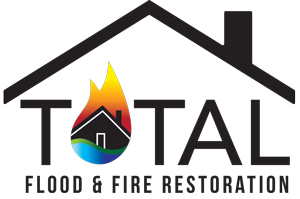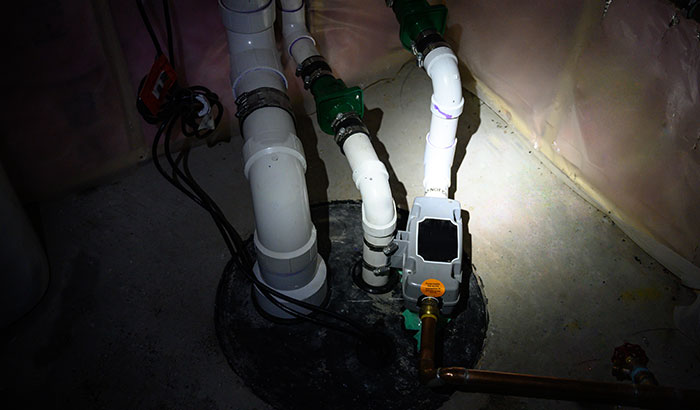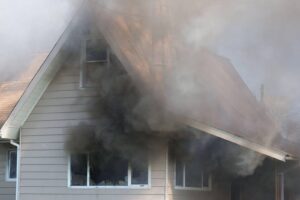Sewage damage is a nightmare that no homeowner wants to face.
The mere thought of raw sewage infiltrating your living space is enough to send shivers down your spine. Thankfully, understanding the risks and taking proactive measures can save you from the devastating consequences of sewage damage.
Is Sewage Damage Dangerous?
Beyond the repulsive odor and unsightly mess, sewage damage poses serious health risks to you and your loved ones. Contaminated water carries harmful pathogens, bacteria, and even viruses that can make you sick.
Exposure to sewage can lead to gastrointestinal illnesses, respiratory issues, and skin infections. Protecting your home from sewage damage isn’t just about preserving its structural integrity – it’s about safeguarding your family’s health and well-being.
Throughout this blog, we will explore the signs of sewage damage that often go unnoticed, the preventive measures you can take to fortify your home’s defenses, and the necessary steps to address sewage damage should it occur.
By following these guidelines, you’ll gain the knowledge and confidence to protect your property and loved ones, ensuring that sewage damage never actually occurs.
Signs of Potential Sewer Backups
When it comes to sewage damage, prevention is key. Detecting the early warning signs can save you from the headache and expense of needing sewer backup cleanup. By keeping an eye out for these indicators, you can take swift action and potentially avert a disaster. Here are some telltale signs that your home may be at risk of a sewer backup:
- Foul odors and unusual smells: If you notice persistent, unpleasant odors emanating from your drains, toilets, or sinks, it could be a sign of a sewer backup in the making. These foul smells are often caused by trapped sewage gases, indicating that there might be a blockage or issue within your sewer line.
- Slow or clogged drains: Have you noticed that water is taking longer to drain or that your sinks, tubs, or toilets are frequently clogging? These are classic warning signs of a potential sewer backup. Slow drainage or recurrent clogs may suggest that wastewater is not flowing freely through your pipes, indicating a possible blockage or obstruction further down the line.
- Backed-up toilets or overflowing sewage: One of the most obvious signs of a sewer backup is when your toilets start misbehaving. If you find that flushing the toilet causes water to rise instead of draining properly, or worse, sewage begins to overflow onto your bathroom floor, it’s crucial to act swiftly. These are clear indicators that your sewer system is compromised and requires immediate attention.
- Bubbling drains: Pay attention to your drains when using various fixtures, such as sinks, showers, or washing machines. If you notice unusual bubbling or gurgling sounds coming from the drains, it could indicate a blockage in your sewer line. Bubbling drains are often caused by trapped air trying to escape due to a backup or obstruction.
By recognizing these signs of potential sewer backups, you can promptly address the underlying issues before needing sewer backup cleanup. Don’t ignore the warning signs; they are your first line of defense in preserving the integrity and safety of your home.
Preventive Measures
While sewer backups and sewage damage are out of your control, there are actually things you can do to help prevent backups!
- Regular inspection and maintenance of plumbing systems: Schedule periodic inspections of your plumbing system by a professional plumber. They can identify potential issues like tree root intrusions, pipe corrosion, or blockages before they escalate. Regular maintenance, including snaking or hydro jetting, can help keep your pipes clear and free-flowing.
Also, if you notice any of the signs we discussed in the previous section, call a plumber immediately. They can help resolve any of these problems before they turn into a disaster.
- Proper waste disposal and drain care: Be mindful of what you flush down the toilet or pour down the drains. Avoid disposing of items like sanitary napkins, wipes, cooking grease, or excessive amounts of food waste. Use drain strainers to catch hair, debris, and other solid materials, preventing them from entering the plumbing system and causing blockages.
- Installing backwater valves and sump pumps: Consider installing backwater valves on your main sewer line. These valves allow wastewater to flow out but prevent it from backing up into your home during periods of heavy rainfall or sewer system overflows. Additionally, a sump pump can effectively redirect excess water away from your property and reduce the risk of flooding or sewage backups.
Dealing with Sewage Damage
We get it; things happen, even when you take preventative measures. If you discover sewage damage in your home, it’s important to take immediate action to mitigate the impact and prevent further harm.
When faced with sewage damage, take the following steps:
- Prioritize your safety and evacuate the affected area if necessary, especially if there is standing water or the risk of electrical hazards. Avoid direct contact with sewage-contaminated materials and wear protective gear, including gloves, masks, and waterproof boots.
- Contact professional sewage cleanup and restoration services with expertise in handling these hazardous situations. Sewage cleanup services have the necessary equipment, knowledge, and experience to safely remove sewage, sanitize the affected areas, and restore your home to its pre-damage condition.
- Remember to document the damage by taking photographs and keeping records of any expenses incurred, as this will be crucial for insurance claims. Swift action and professional assistance are key to efficiently dealing with sewage damage and minimizing its impact on your home and well-being.
Dealing With Insurance
Understanding your homeowner’s insurance policy and taking the necessary steps can help you effectively handle insurance claims related to sewage damage. Here’s a guide to dealing with insurance in the aftermath of sewage damage:
- Review your insurance policy: Take the time to carefully review your homeowner’s insurance policy to understand the extent of coverage for sewage damage. Look for specific clauses or endorsements related to water damage, sewer backups, or sewage-related incidents. Familiarize yourself with the terms, conditions, and exclusions outlined in the policy.
- Document the damage: As we stated above, you should thoroughly document the sewage damage’s extent. Take photographs and videos of the affected areas, including the visible damage, standing water, and any destroyed belongings. This documentation serves as essential evidence for your insurance claim.
- Notify your insurance company: Contact your insurance company as soon as possible to report the sewage damage. Follow their guidelines for filing a claim and provide them with accurate and detailed information about the incident. Be prepared to answer questions and provide supporting documentation, such as photographs, videos, and receipts for damaged items.
- Keep records of expenses: Throughout the restoration process, keep track of all expenses related to the sewage damage, including invoices, receipts, and any additional costs incurred. This information will be vital when submitting your insurance claim.
Don’t Face Sewage Damage Alone – Let Total Flood and Fire Restoration Help
Don’t let sewage damage leave you feeling overwhelmed. Total Flood and Fire Restoration is here to help you reclaim your home and peace of mind. Our experienced team specializes in sewage cleanup and restoration, utilizing state-of-the-art equipment and industry-leading techniques. From comprehensive water extraction to thorough sanitization and restoration, we are committed to restoring your home back to the way it was.
Contact Total Flood and Fire Restoration today by calling us at 385-503-2846, and trust us to take care of your home with the utmost care and professionalism.







